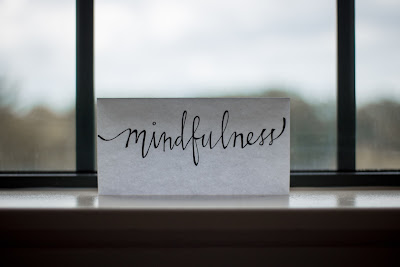This post contains affiliate links. Click here for the full disclosure statement.
Like many (many) others, I picked up The Hunger Games shortly after it was published. Now, I picked it up because it was required reading for school (Seton Hill MFA program—this is my only plug), but for the purposes of what I’m about to unpack, the reason doesn’t matter so much. The important thing is that I read The Hunger Games, Catching Fire, and then Mockingjay within a few days and loved the everything out of them. The first-person present tense was engaging. The adventure hooked me. In the back of my mind, I knew Katniss was going to overthrow the capital, but I still got caught up in wondering if she could possibly succeed (and at what cost to herself) against so much strength and power. Unsurprisingly, I finished the trilogy and went on to look for everything in any way remotely similar to this tale of a dystopian society fighting for its children’s lives.
Next, I found Divergent (which was okay), Marie Lu’s Legend series (which I loved), Shatter Me (which hardcore reminded me too much of X-Men with lots of kissing), Under the Never Sky (which had the hero scenting the heroine’s menses…oooookay), The Selection (which had me with all the pretty dresses until the rebellion sort of came out of nowhere in book 3), and a few other YA dystopias that, if I’m honest, didn’t dazzle me. Still, I was hooked. Between the immediate POV, the romance (for the most part), and the cool technology, I’d found a genre to devour. What were a few clunkers?
This led me to YA paranormal, which, unfortunately, dazzled me less than the dystopias. A few really stood out (such as those by Lish McBride), but most left me feeling like I’d missed something. The paranormal angle wasn’t doing it. The romance didn’t ignite my feels, and the common first-person present began to feel like a marker of books that were just “meh.” After setting down the umpteenth disappointment, I decided it was time for a break. I hung up my YA dystopia/paranormal hat and dove into genres that weren’t written primarily in first-person present.
I should pause here to say I’m not bashing on YA. I’ve seen a lot of YA bashing, and maybe five years ago, this would have devolved into a YA bashing post. Rather, the following paragraphs just happened to be something I discovered while reading a (wait for it) YA paranormal that I quite enjoyed.
This past week, I picked up Holly Black’s The Cruel Prince for my book club. Within a few pages, I resigned myself to writing it off as “that book someone picked for book club that I forced myself to finish.” Since I wanted to be able to discuss it with my friends at our next (virtual) meeting, I kept reading, and around the 25% mark, I started to become interested. The further I read, the more my interest grew, and during a pause from reading, I begrudgingly forced myself to admit there was nothing before the 25% mark that set off my unbelievability-o-meter. So why, then, did I have such an initial “I’m not going to like this” reaction?
Answer: first-person present
Before I go on, there is nothing wrong with first-person present. It gets a lot of crap for being a bad POV or hard to read or whatever else, but as a POV, it has its place.
So, back to realizing first-person present was the problem. It wasn’t the POV itself. It was the memory of past first-person present stories (and non-first-person present stories with similar themes) that had left me confused, upset, or just bored. My brain subconsciously registered The Cruel Prince’s first-person present as something I didn’t like and told my emotions to prepare to suffer through this book.
And why did this happen? Because I was not being mindful. I was not making decisions based on the book itself. Rather, I was allowing my subconscious to make decisions based on past experiences of a younger, more inflammatory me. In short, I was not being mindful of my reading.
I will not turn this blog post into a self-help book. What I will do is state, in no uncertain terms, how important mindfulness is, and not just for reading. Being mindful means we are aware of our decisions. It means not allowing our knee-jerk reactions to influence our opinions before we have enough of a thing to determine whether we like it or not. If I hadn’t started The Cruel Prince for book club, I might have put it down before 25% and never gotten to the interesting part. My subconscious, automatic reaction would have answered how I felt about the book before I even knew what happened in its pages.
This is not a problem that’s specific to reading. We make subconscious judgments about people, our world, food, colors—you name it. This is natural and, in a way, healthy. Without those judgments and categories, our brains would become overwhelmed and stop functioning entirely. The key is not to rely on those initial judgments. Accept the category to keep yourself sane but then open your mind to the possibility that categories have subcategories and that some things will completely violate their category. I haven’t been much for YA paranormal in years, but I’ve now finished the two sequels to The Cruel Prince and enjoyed them. All because I chose to read mindfully.
There are plenty of reasons I’ll consciously decide to put a book down—lots of errors that are too distracting to read past, the story isn’t what the blurb promised, underdeveloped characters/world/story. In these cases, there’s something I’ve taken note of and, from that, made the decision not to read. This is mindfulness. Being mindful is being aware of why you do something. It’s making an informed, conscious decision to take action based on something in your environment. It’s being aware of your actions.
Is The Cruel Prince my favorite book of all time? It’s not. Would I recommend it? I would. And the only reason I can say either of those things is that I consciously chose to read it.
Read and live mindfully. Don’t quit things at the 25% mark unless you know why you’re doing it. Be aware of reasons for your decisions. Don’t make alterations on the fly without reason. Don’t let the subconscious dictate what you’ll do without input from your conscious mind. Be aware. Be mindful. Make better, more informed, more useful decisions about books. And everything else.
Follow the Blog
Never miss a post!
~Follow with RSS or…
Follow




Comments
Post a Comment